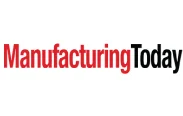Future of manufacturing in a digitally changing world

Emerging digital technologies are transforming the world of manufacturing, enabling more efficient processes and creating new value for industry, society and the environment. Manufacturing remains a critical force in both advanced and developing economies. But the sector has changed, bringing new opportunities and challenges to business leaders and policy makers.
Like every other industry, digital revolution is now breaching the walls of manufacturing as it continues to disrupt media, finance, consumer products, healthcare, and other sectors. Finally, manufacturers are moving to a digital world. Manufacturing companies are using technology to move from mass production to customised production, and it's happening at a rapid pace. The fourth industrial revolution is currently witnessing every other factory thriving to have real-time data to achieve closed-loop operations, monetisation of assets, faster time-to-market and reducing incidents through monitoring and safety controls.
Digital technologies are changing people's lives, enabling the ongoing digitalisation of business and driving organisations to continually refresh their business models. In this long march to digitalisation, technology is amplifying continuous change at an ever-increasing velocity. Factories are shifting to a future-focused approach by adapting digital technologies to integrate machines, sensors and robotics systems to transform its operations towards more efficiency and scalability.
The digital revolution within the manufacturing industry is going beyond operations to the entire lifecycle of production assets right from Design, Make, Manage and Service of the products. Technologies like 3D printing are helping manufacturers create design and prototype of physical parts during the design phase of the product life cycle, which hugely saves time-to-market and avoids wastage. This technology has evolved in the last decade and now commonly used across all stages in the industry.
New tech for better impact
Manufacturing technology is not what it used to be a decade ago. Companies can now improve customer experience and enhance growth opportunities by leveraging more modern technologies to respond to changing market dynamics in a timely and appropriate manner. In order to stay competitive, effectively manage complex manufacturing scenarios, and to meet growing business demands, Factories of the Future need to implement digital technologies like Digital Twins, Augmented / Virtual Reality (AR/VR), IOT Platform, and Artificial Intelligence & Machine Learning. These solutions enable management to take data-driven decisions, provides shop floor to top floor visibility, predictive analytics on maintenance and in-process Quality, Paperless automation, Vendor- managed inventory, and effectively utilise experienced talents by de-skilling using AR/VR solutions. In addition to cutting the costs, these technologies create speed, precision, efficiency and flexibility for manufacturing companies.
Seamless integration of systems right from PLM, ERP, MES, IoT Platform to Analytics solutions is one of the critical success factors for a successful digital Transformation of a Factory for the Future along with upskilling and cross-skilling of the existing workforce to use these digital solutions effectively.
The rise of reskilling
The fourth industrial revolution that we are currently witnessing is being defined as the new age of automation, driven by unprecedented technological advances. As technology permeates through various industries, we are confident that the symbiosis of skills and innovation will be well absorbed across industries. Bringing these future jobs to life can help business leaders, workers, educators, and policymakers shape their vision and spark conversations around what needs to change to make this happen. The workplace as we know is being rapidly reshaped by multiple game changing trends which are having a significant impact on business growth and access to skilled talent. The scenario for jobs and skills of the future continues to evolve, and the industry should ensure that the focus for talent remains an imperative.
Unlocking India's potential
Manufacturing has emerged as one of the high growth sectors in India. The Government had launched the 'Make in India' program to place India on the world map as a manufacturing hub and give global recognition to the Indian economy. If India is serious about maintaining its industrial growth trajectory over a long term, then the nation's manufacturing firms need to focus on developing capabilities in innovation.
India is fast emerging as the Engineering and Design hub for various vertical domains of Automobiles, Aerospace, Consumer electronics, Machinery, Semiconductor, Telecom, Construction, Industrial automation, Medical devices, Energy and Computing. It is home to over 1100+ companies, who provide scalable and domain rich talent pool and offer cutting-edge solutions; reducing the cycle time for new product creation, design agility, after market capabilities.
Industry 4.0 is the current trend of Automation and Data Exchange in Manufacturing Technologies. It includes Cyber-Physical Systems, the IOT, AR/VR, Additive Manufacturing, Cyber Security and many other related aspects. The manufacturing and logistics sectors are on the front end of a massive disruption. From AI, 3D printing and robotics to drones, self-driving trucks and IoT, technology is upending these industries. The Industry and the Government must focus on addressing the challenges ranging from inadequate infrastructure, domestic supply chain and logistics, and quality power, to the high cost of doing business and limited design capabilities, R&D efforts and skilled resources.
